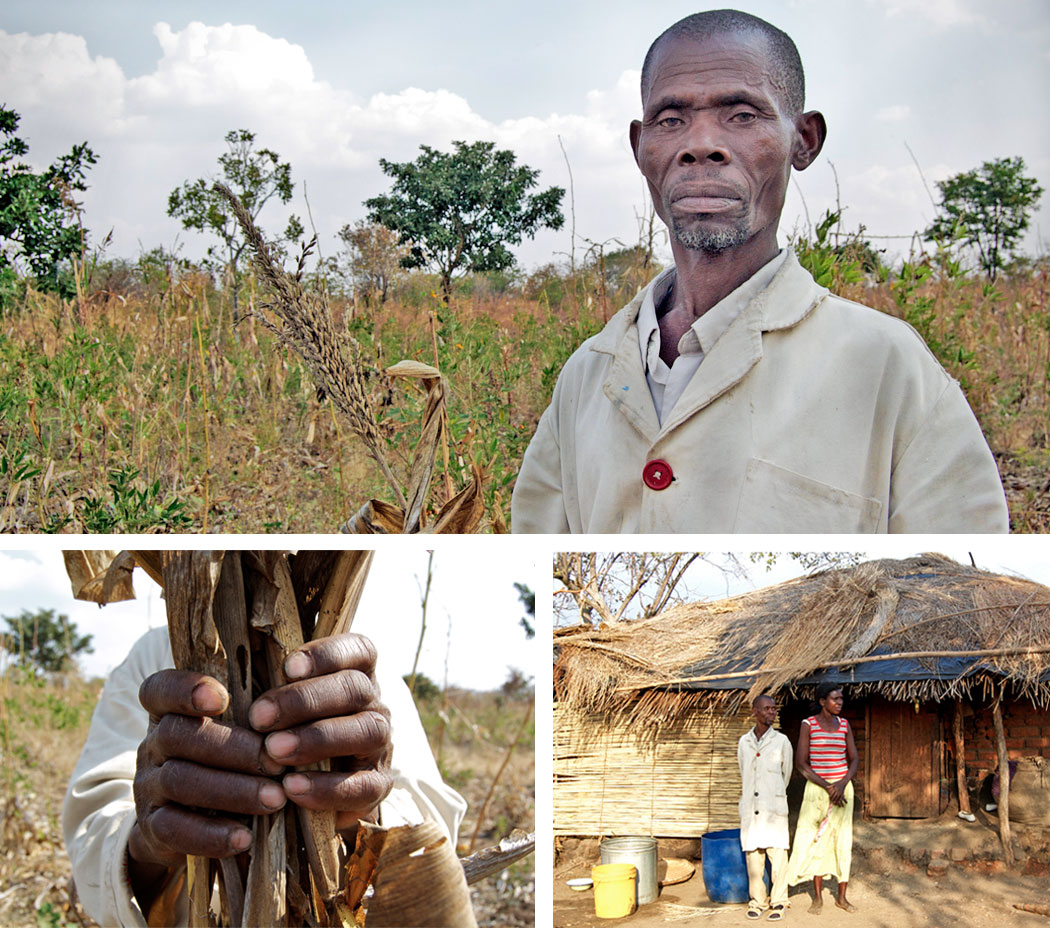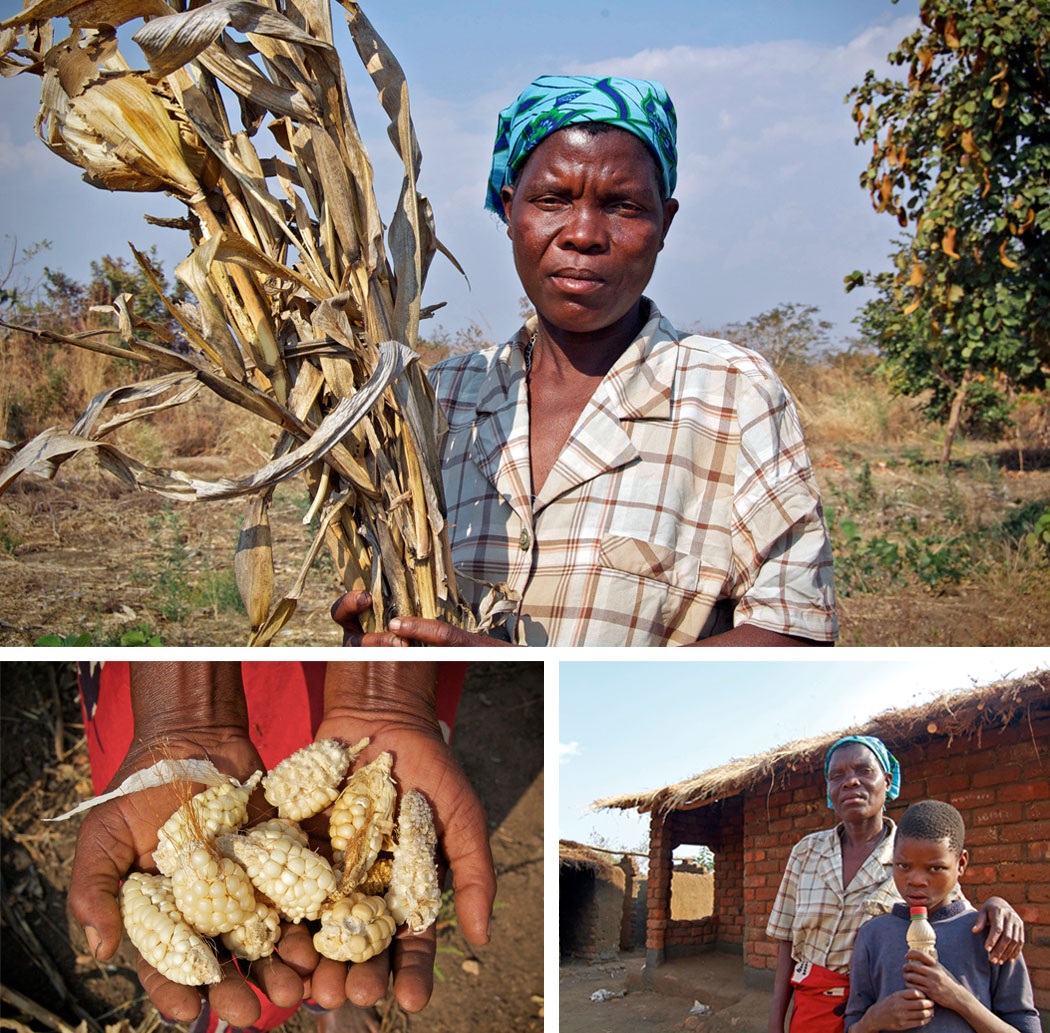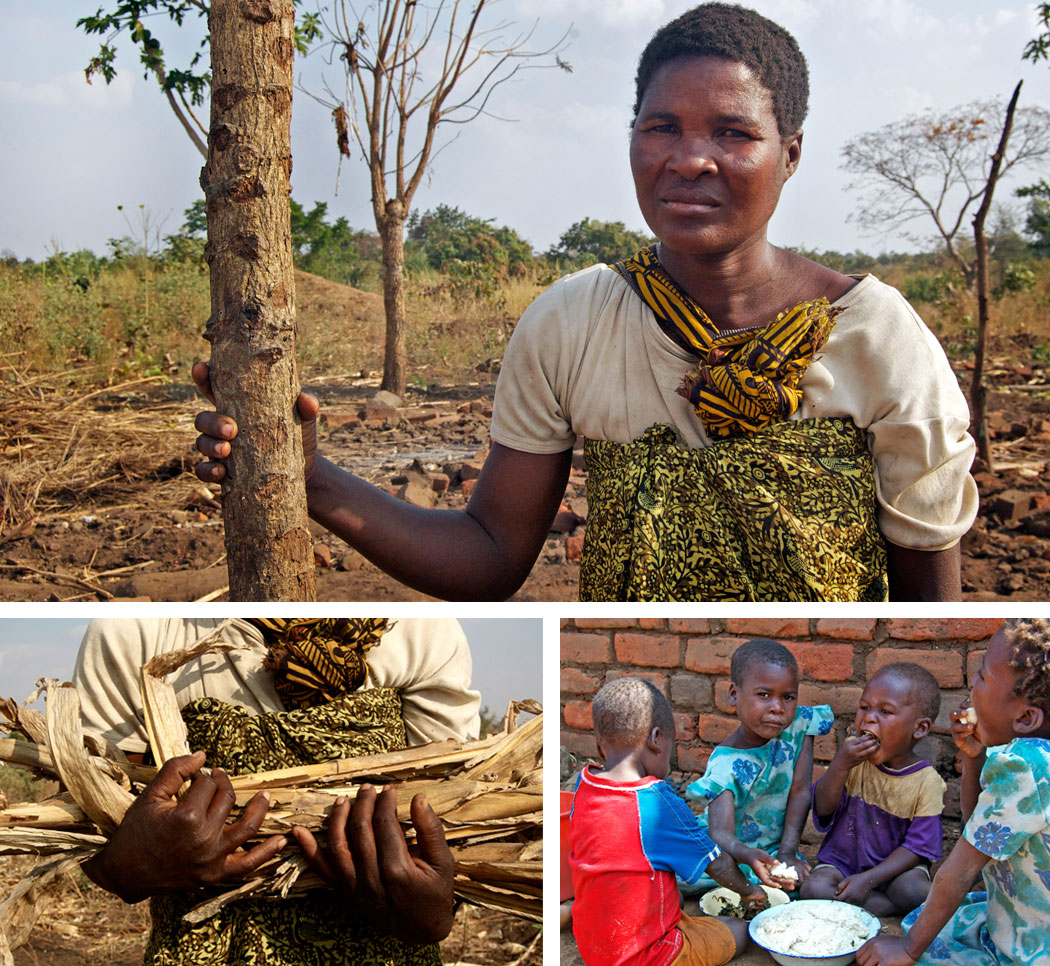- 6 mins read time
- Published: 16th April 2013
'I get dizzy and have stomach pains when I‘m hungry'
While negotiations to reduce carbon emissions are taking place at a snail’s pace, millions of people in the developing world are already suffering from the effects of climate change.
In Malawi, dramatic fluctuations and weather patterns are already causing serious problems.
Zuze has lived in Balaka, southern Malawi, his whole life. He has seen many changes during his time there. But recent droughts have had a severe impact on his maize crop and the amount of food the family has. Zuze planted 3 times last year and only harvested four bags of maize, which lasted six months.
"The climate keeps on changing and if it doesn’t improve life will be hard on us and we will just be waiting for the time when are going to die. There won’t be any solution. We are just living on faith, hoping that things will change.”

Clocwise from top: Zuze stands in his field of failed crops. Zuze and whis wife at home. Zuze holds up his failed maize plants. Photos: Amy Christian/ Oxfam.
To survive, he is forced to work on other people's land to earn money and food for his family. The work is tough and often, because he is weak from a lack of food, he passes out while working.
“We planted for the first time when the rains came but it didn’t grow, we planted the second time and nothing happened and the third time a little bit survived. When the maize was growing there was a lot of sun and that’s why it died.”
According to Chiyamba Mataya, Humanitarian Coordinator with Oxfam in Malawi, longer than expected drought and increasingly erratic rainfall is affecting the ability of people to cope from one season to the next.
“People are failing to produce because of the prolonged dry spells. The last production season, most of these people harvested maybe only one bag which they produced in one month.”
The impact of climate change is particularly hard on women, who do the majority of work on farms but are also responsible for the welfare of children and upkeep of their homes.
Elizabeth supports her 4 children alone as she kicked her husband out after he became a drunk and regularly beat her.
“I give the children one meal a day because I want the food to last us longer. It’s not enough food for my children. It’s a big problem as they get very mal nourished, most of the time they are weak. When they go to school in the mornings they can’t concentrate in class as they are so weak.”

Clocwise from top: Elizabeth holds the remains of her failed maize. Elizabeth and her 12 year old son David outside their home. Elizabeth holds failed maize in her hands. Photos: Amy Christian/ Oxfam.
Her crops failed three times last year, forcing her to take on extra work for food to feed her family.
‘When I haven’t eaten for two or three days I am very weak and I have constant stomach pains. When you have to sleep on an empty stomach and then in the morning you have to go and do manual work it’s really hard. I go and get a gallon of water and that’s what I rely on. When the sun is very high I sit on a tree and wait for it to cool down and then I can continue. It is very hard on me.'
Madelena has similar problems. She has four children who she supports alone. To survive she has resorted to catching field mice to supplement the little Nsima (flour and water) she gives the children.
“There have always been droughts but these last three years are the worst. When everything is ok I harvest around six to seven bags of maize. When we have seven bags it can last us up to 10 months.”
Last year, she harvested two bags.

Clocwise from top: Madelena stands where her house once did. Madelena has 4 children whom she supports alone. In the last three years succesive drought have affected her ability to provide for them. Madelena holds the remains of her failed crop. Photos: Amy Christian/ Oxfam.
“I get dizzy and have stomach pains when I‘m hungry. But the main problem is the children, when they are hungry they just cry and so I worry that they are having the same problems, that they are dizzy and in pain. Sometimes when I feel dizzy I have to lie down for a while and wait for it to go. When I drink water it doesn’t help as there is nothing in the stomach, there is no food. Sometimes I go a day without food, sometimes two days.”
Oxfam Ireland is supporting projects in Balaka and Blantyre rural districts, where it is helping the most vulnerable communities adapt and build resilience to changing weather patterns, enabling them to meet their needs all year round.
The project will help improve farmers’ agricultural production by supporting them to grow more drought resistant crops, developing irrigation systems and providing training in water management and soil conservation techniques.
However, more support must be given to funding climate mitigation schemes so that countries have the resources to respond to climate change.
Speaking to RTE’s Tony Connolly from Malawi, Chief Executive of Oxfam Ireland Jim Clarken said that it is critical that we scale up funding in line with UN commitments.
“As a matter of urgency, we need to see funding into a proper adaptation fund so that countries like Malawi can do something about it and strengthen their own ability to cope every day.”
